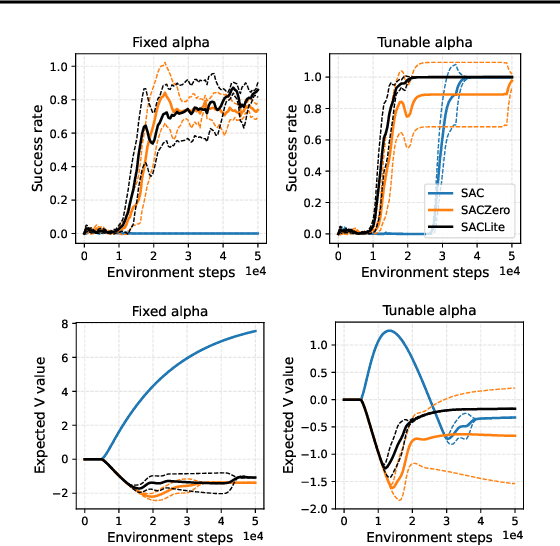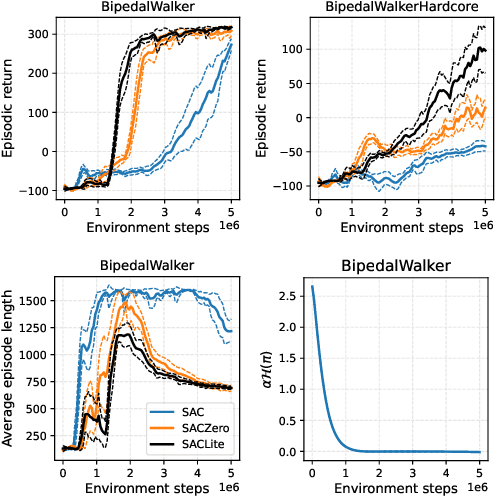Do You Need the Entropy Reward (in Practice)?
Paper and Code
Jan 28, 2022



Maximum entropy (MaxEnt) RL maximizes a combination of the original task reward and an entropy reward. It is believed that the regularization imposed by entropy, on both policy improvement and policy evaluation, together contributes to good exploration, training convergence, and robustness of learned policies. This paper takes a closer look at entropy as an intrinsic reward, by conducting various ablation studies on soft actor-critic (SAC), a popular representative of MaxEnt RL. Our findings reveal that in general, entropy rewards should be applied with caution to policy evaluation. On one hand, the entropy reward, like any other intrinsic reward, could obscure the main task reward if it is not properly managed. We identify some failure cases of the entropy reward especially in episodic Markov decision processes (MDPs), where it could cause the policy to be overly optimistic or pessimistic. On the other hand, our large-scale empirical study shows that using entropy regularization alone in policy improvement, leads to comparable or even better performance and robustness than using it in both policy improvement and policy evaluation. Based on these observations, we recommend either normalizing the entropy reward to a zero mean (SACZero), or simply removing it from policy evaluation (SACLite) for better practical results.
 Add to Chrome
Add to Chrome Add to Firefox
Add to Firefox Add to Edge
Add to Edge